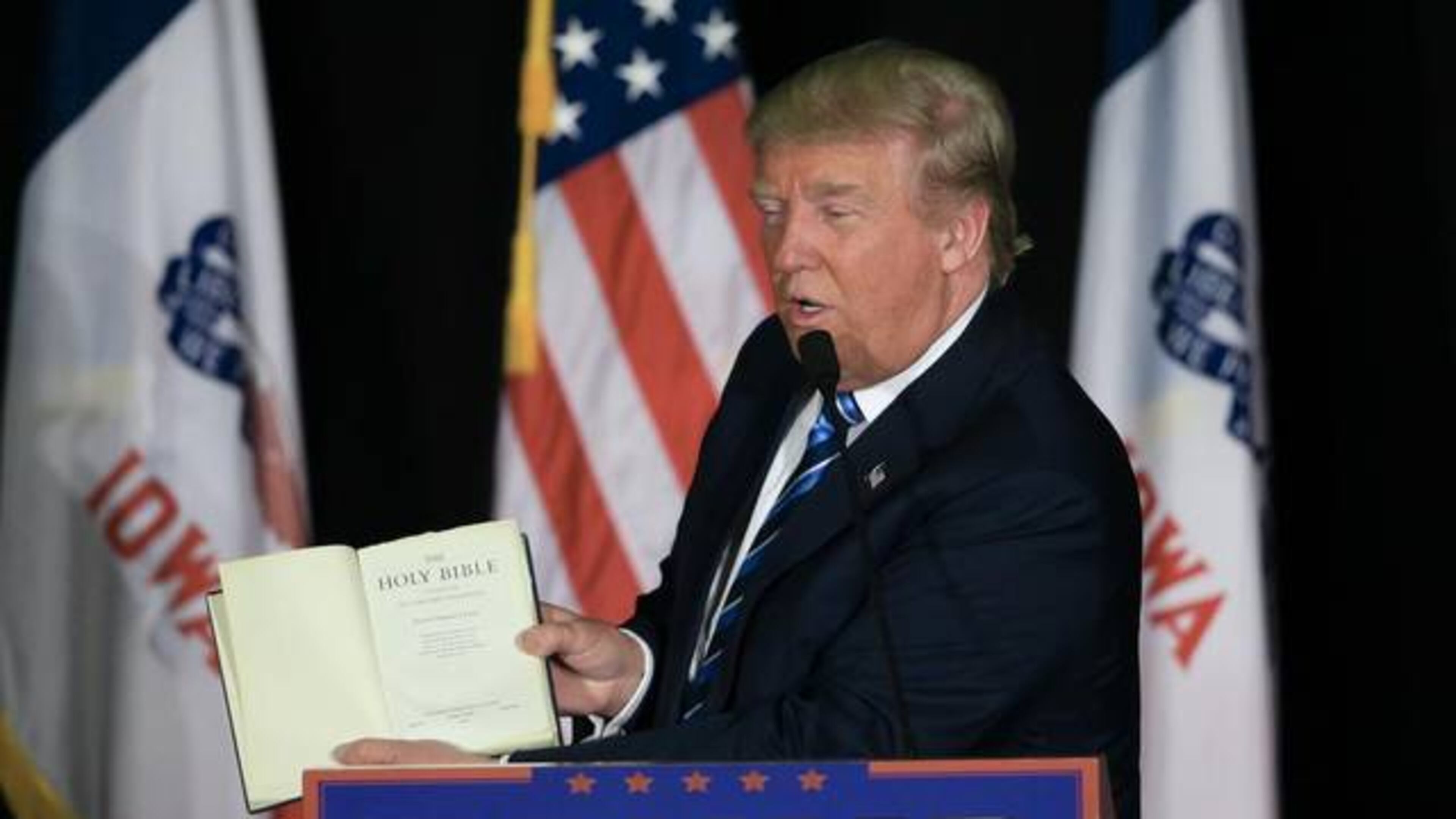Is supporting Trump doing the 'work of the Lord'?

The Jeffersonian "wall between church and state" -- a wall that Baptists once defended as vigorously as they now denounce it-- has long served to protect both parties in the arrangement. It ensures that government does not become an extension of any particular sect or creed, and that religion in turn is not corrupted by the pursuit of political power.
The process by which religious faith can be corrupted by the pursuit of secular power is now on clear display in the flirtation between white evangelicals and Donald Trump. Inexplicably, a lot of white evangelicals have already gravitated toward the thrice-married, casino-owning, biblically illiterate Manhattan playboy with a penchant for public penile bragging, a reality that calls into question the movement's claim to comprise morality-based "values voters." Some evangelical leaders, such as Jerry Falwell Jr., have even endorsed Trump.¹
And if they can support the likes of Trump under a Republican banner, it raises an obvious question: Who in the world would they NOT support under those conditions? To be blunt, it makes them look like blooming hypocrites.
Here in Georgia, according to exit polls, Trump easily defeated Ted Cruz among white evangelicals, pulling 39 percent to Cruz's 26 percent. The same was true in South Carolina and other GOP primary states with a heavy evangelical base. In South Carolina, Trump even won among GOP voters who claimed that "it matters a great deal or somewhat" that a candidate share their religious beliefs.
To their credit, some evangelical leaders have balked at supporting Trump. Russell Moore, head of the Ethics and Religious Liberty Commission of the Southern Baptist Convention, wrote last week that the Trump campaign "has cast light on the darkness of pent-up nativism and bigotry all over the country."
"There are not-so-coded messages denouncing African-Americans and immigrants; concern about racial justice and national unity is ridiculed as 'political correctness',” Moore noted. "Religious minorities are scapegoated for the sins of others, with basic religious freedoms for them called into question. "
"The man on the throne in heaven is a dark-skinned, Aramaic-speaking “foreigner” who is probably not all that impressed by chants of “Make America great again,” Moore concluded.
Trump's response to that and other statements by Moore?
Astoundingly, Politico now reports that major evangelical leaders are looking toward Trump's selection of a running mate to determine whether they will throw their full support behind him and his "Christian" message. Penny Nance, head of Concerned Women for America, a group dedicated to advancing "biblical principles," describes what she sees as the stakes:
“There’s a big difference between me saying I don’t think we should do a third party, and giving a full-throated endorsement in which I actually work for him and get out the vote for him,” Nance said, saying that she’s not at all committed yet to doing the latter. “It remains to be seen how involved our ladies will be.
“Door-to-door leaflets, sign waving, that’s the thing my ladies do,” she continued. “We’re the legit activists. We do it for free. Phone banking, hours and hours of phone banking, that’s a necessary part of the campaign. You can’t buy that.”
No. You can't buy that. But as an acknowledged outsider, I also can't buy the idea that Nance's "Christian ladies" out there phone banking for the likes of Trump would be doing the work of the Lord.
-------------
¹ Mark DeMoss, chairman of Liberty University's Board of Trustees' executive committee, was recently forced to resign from the post after he criticized Falwell's endorsement. "Donald Trump is the only candidate who has dealt almost exclusively in the politics of personal insult," DeMoss told The Washington Post. "The bullying tactics of personal insult have no defense — and certainly not for anyone who claims to be a follower of Christ. That's what's disturbing to so many people. It's not Christ-like behavior that Liberty has spent 40 years promoting with its students."
